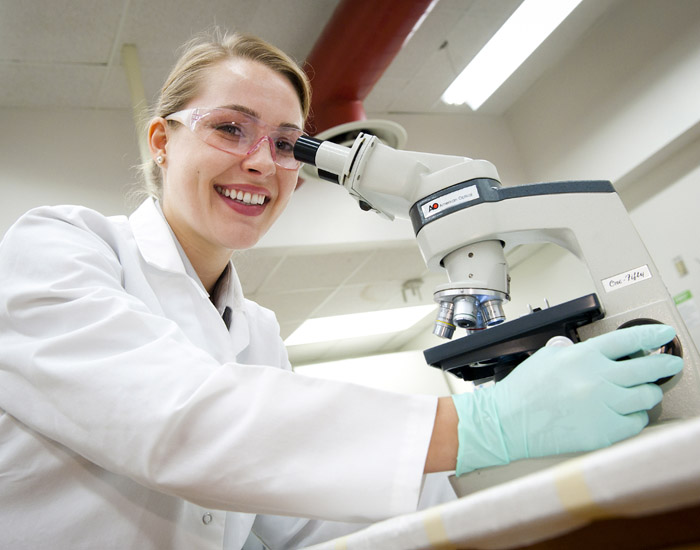BIOLOGICAL SCIENCES (BSC)
Office: 1324 Science and Engineering Complex
BSC 108 Introductory Biology for Non-Majors I. 4 hours.
Lecture and laboratory. Not open to biology majors or minors, pre–health professions students, or students with credit for BSC 114:115 and BSC 116:117 (or the honors equivalents, BSC 118 and BSC 120). Survey of the basic principles of cellular biology, genetics, plant and animal diversity, and evolution. Usually offered fall, spring, and summer. BSC 108 and BSC 109 may be taken in either order.
BSC 109 Introductory Biology for Non-Majors II. 4 hours.
Lecture and laboratory. Not open to biology majors or minors, or to pre–health professions students. Study of the physiology of living organisms, with emphasis on the physiology of humans. Includes an overview of general ecology and animal behavior. Usually offered fall, spring, and summer. BSC 108 and BSC 109 may be taken in either order.
BSC 114 Principles of Biology I. 3 hours.
 For biology majors, biology minors, and pre–health professions students. Study of general biological principles, including the chemical basis of life; cellular biology, including cell structure and metabolism, genetics, evolution; and a survey of simple organisms, including viruses, bacteria, protista, and fungi. Offered fall, spring, and summer. NOTE: A student must take both BSC 114 and BSC 115 in order to use either one of the courses to satisfy a portion of the natural science (N) requirement of the University Core Curriculum.
For biology majors, biology minors, and pre–health professions students. Study of general biological principles, including the chemical basis of life; cellular biology, including cell structure and metabolism, genetics, evolution; and a survey of simple organisms, including viruses, bacteria, protista, and fungi. Offered fall, spring, and summer. NOTE: A student must take both BSC 114 and BSC 115 in order to use either one of the courses to satisfy a portion of the natural science (N) requirement of the University Core Curriculum.
BSC 115 Biology I Laboratory. 1 hour.
Prerequisite or corequisite: BSC 114.
 NOTE: A student must take both BSC 114 and BSC 115 in order to use either one of the courses to satisfy a portion of the natural science (N) requirement of the University Core Curriculum.
NOTE: A student must take both BSC 114 and BSC 115 in order to use either one of the courses to satisfy a portion of the natural science (N) requirement of the University Core Curriculum.
BSC 116 Principles of Biology II. 3 hours.
Prerequisite: BSC 114 or BSC 118.
For biology majors, biology minors, and pre–health professions students. Study of the structure, function, and ecology of organisms, including bryophytes, vascular plants, invertebrate animals, and vertebrate animals. Offered fall, spring, and summer. NOTE: A student must take both BSC 116 and BSC 117 in order to use either one of the courses to satisfy a portion of the natural science (N) requirement of the University Core Curriculum.
BSC 117 Biology II Laboratory. 1 hour.
Prerequisite: BSC 115.
NOTE: A student must take both BSC 116 and BSC 117 in order to use either one of the courses to satisfy a portion of the natural science (N) requirement of the University Core Curriculum.


No comments:
Write comments